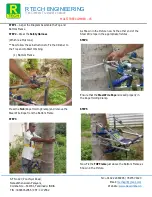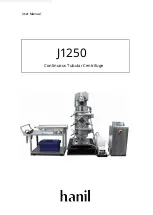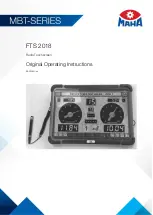
en
FAQ – English
In the case of chapter references, see the full instructions for use available online.
Question / Error / Problem
Cause
Troubleshooting / Solution
Unit displays a filament flow
error.
Either too little filament or
no filament at all is extruded
from the nozzle.
• Nozzle temperature is too low. The
filament does not melt and cannot
be extruded from the nozzle.
•
When using TEMP1 and TEMP2
group filaments, always load / un
-
load the filament with the TEMP2
setting.
•
Only use the temperature specified for the filament.
Relevant information is provided on the spool and
on the packaging of the filament.
•
Objects printed using SIMPLEX aligner model
Filament must be sliced using the "SIMPLEX
aligner model" profile.
Nozzle is blocked
•
If the temperature of the nozzle is
too high, the filament can vitrify on
the inside wall of the nozzle and
harden.
The flow of material may gradually
come to a stop and the nozzle may
become blocked.
•
Ensure that the temperature for the
filament is used for printing:
-
TEMP1: SIMPLEX study model /
working model / multi-use
-
TEMP2: SIMPLEX aligner model
•
Step 1:
-
Heat the nozzle to 255°.
-
Select the EXTRUDER menu. Wait until the ex
-
truder has reached the required temperature.
-
Press the "Load filament" button. This automati
-
cally results in extrusion of 15 cm of filament.
-
Perform this action three times.
-
Now select the nozzle temperature required for
the filament used. Wait until it is reached.
-
Press the "Load filament" button and check wheth
-
er the blockage has been resolved.
•
If step 1 is not successful, replace the nozzle.
Nozzle is blocked
•
If the filament is transported via the
extruder into the hotend and then
through the nozzle and dust and dirt
also accumulate, there is also a risk
of a blockage.
•
Store the filament in a dry location
away from dust.
•
Step 1:
-
Heat the nozzle to 255°.
-
Select the EXTRUDER menu. Wait until the ex
-
truder has reached the required temperature.
-
Press the "Load filament" button. This automatical
-
ly results in extrusion of 15 cm of filament.
-
Perform this action three times.
-
Now select the nozzle temperature required for the
filament used. Wait until it is reached.
-
Press the "Load filament" button and check wheth
-
er the blockage has been resolved.
•
If step 1 is not successful, replace the nozzle.
How long is the average ser
-
vice life of the nozzle?
•
The service life depends on the filament used.
-
As it contains plaster, SIMPLEX multi-use filament
causes greater wear of the nozzle.
SIMPLEX multi-use filament approx. 400 operating
hours.
-
SIMPLEX study model, SIMPLEX working model,
SIMPLEX aligner model approx. 800 operating
hours.
How should the outside of the
nozzle be cleaned?
•
The outside of the nozzle can be cleaned using a
thick, temperature-resistant cotton cloth.
•
Do not use alcohol, pins, drills, or sharp-edged
tools! Caution: Danger of burns!
•
The dark color of the nozzle is a normal reaction
due to the temperature of up to 250 °C.
Filament is extruded between
the nozzle and the hotend.
•
The nozzle is not screwed on se
-
curely.
•
The nozzle must be screwed on securely to the
hotend.
The nozzle has become
blocked after replacing SIM-
PLEX study model filament
with SIMPLEX aligner model
filament or vice-versa.
•
The temperature at which the fila
-
ment was replaced was too low.
•
TEMP2 must always be selected when replacing
the filament. This is the only way to ensure that the
previous filament is completely removed from the
nozzle.
Print object does not adhere
to the print bed.
•
The distance between the nozzle
and the print bed is too large.
•
Level the print bed.
•
Kapton film of the print bed is dirty.
•
Thoroughly clean the Kapton film with alcohol.
•
The Kapton film may need to be replaced.
- 1 -










































